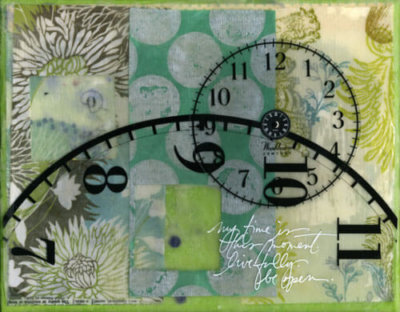Therapist Costs ‘Too Much’? 10 Ways Therapy MAKES You Money
By: Tax Credits
by Andrea M. Darcy
One of the first complaints people have about counselling and psychotherapy is that ‘a therapist costs too much’.
While a good therapist can indeed charge a healthy hourly rate, there is another side to money and therapy to consider.
10 Reasons therapy helps you make more money
“I cant afford not to… [therapy] enabled me to get to grips with financials and stuff that has saved me more than the cost of therapy.” (Unleaded, commenting on Guardian article entitled “Is Therapy Worth the Cost” ).
Can therapy help you get your life together to the point you are actually earning more money than before? We’d say a solid yes, and here’s our reasons why.
1. Your mind is clearer.
Does your ‘foggy head‘ mean you can’t excel at work or feel too ‘brain dead’ at night to plot out your future?
Therapy addresses the anxiety, stress, and depression that all cause muddled thinking. Therapy also helps you clear out repressed memories and emotions, also known for causing brain fog.
2. You gain self-confidence.
Do you never apply for the job /promotion/education/business loan you want because you are sure you aren’t smart/good/worthy/interesting enough?
In therapy you learn to recognise your strengths, catch and change negative thinking, understand yourself, and develop self-compassion.
The raising of self-esteem this offers not only means you are more able to seek opportunity. It also means you can stop wasting money on things to gain approval from others and instead find approval within yourself.
3. You learn how to set personal boundaries.
Do you spend so much time doing things for others there is no time to take on that extra contract? Waste money on things you don’t even like or want but feel you ‘must’ participate in?
Therapy gives you the confidence and know how to say no without guilt or rudeness, and helps you know what you do and don’t want to say no to in the first place.
4. You waste less time.
Do you spend hours zoned out in front of the TV despite best intentions to get things done and organise your finances? Do you procrastinate?
Emotional pain and unprocessed trauma can lead to habits of distraction and the zone-out of dissociation.

By: Ali Edwards
When you deal with your issues instead of avoiding them, the habits that waste your time tend to drop away easily and you become more present. And the very act of going to therapy weekly gives you the support system to get things done – including your banking.
5. You make better decisions.
Do you tend to always make bad financial decisions and career moves, but you don’t know why?
Poor decision-making skills can be the product of a difficult upbringing, low self-confidence, and self-sabotage. Therapy helps on all these fronts, plus gives you someone you can run your decisions by in complete trust.
6. Your impulsivity lessens.
Are you that person who spends recklessly and quits your job randomly? Much to the dismay of your bank account?
Impulsivity is a character trait that can be a side effect of childhood trauma, stress, or a symptom of a personality disorder. Therapy helps you get to the root of your rash decision making and learn self-control.
7. You lose less money to addictive behaviours.
Can you just not stop spending? Or are you always broke because of a secret expense (porn, alcohol, drugs, overeating…)?
If you think a therapist costs too much, try an addiction. From shopaholism to drugs, alcohol and overeating, the drain on your finances is heavy. Seeking support to gain control of your addictive behaviour can mean a big savings, and not just with money. You’ll gain back physical health and energy, as well as mental clarity.
8. You learn the secret of living from your values.
Do you find work draining and boring? Wish you could understand what drives people like entrepreneurs to do so much with their time?

By: wetwebwork
Personal values are the things that deeply matter to you – not to your parents, your friends, your colleagues, but you. Finally identifying your own personal values with your therapist, then making choices that align with your values, means you end up in a career where you finally understand what people mean when they say ‘it doesn’t feel like work’.
9. You get to the root of your behaviours around money.
Do you feel like you can’t break out of certain behaviours around work and money no matter how hard you try?
They ways that you think about money, the things you do to get it, and what you do when you have it are all learned behaviours. Trying a therapy that works with the past not only helps you find the roots of such patterns in your life but gives the tools and know how to break the cycles you are trapped in.
10. You can connect with others more easily.
Do you avoid the social events that could help your career? Or feel so overwhelmingly lonely you can’t function well at work?
It’s now shown in studies that human connection is necessary to our wellbeing.
Your relationship with your therapist helps you learn to trust and relate to others better. This can mean you finally develop relationships that support and nourish you and give you more courage in life, including financially. It can also mean you improve useful business skills like networking and communicating with colleagues.
But it’s my money issues that are leaving me depressed in the first place!
Money issues and debt can absolutely cause mental health issues, including anxiety, stress, sleep disorders, overeating, depression, panic attacks, and suicidal thoughts. If this is you, it’s important to seek support. If you can’t hire privately, talk to your GP for a referral, consider low cost counselling options, and call your local Mind charity to see what further help might be available.
Harley Therapy connects you with some of London’s most experienced therapists, including workplace and career counsellors. Not in the UK? Try Online therapy from anywhere.
 Andrea M. Darcy is a mental health and wellbeing expert and writer. She also runs a consultancy helping people find their perfect therapy and therapist. Follow her on Instagram for useful life tips @am_darcy
Andrea M. Darcy is a mental health and wellbeing expert and writer. She also runs a consultancy helping people find their perfect therapy and therapist. Follow her on Instagram for useful life tips @am_darcy







Personally I spent all my savings on therapy with the idea it would help long-term. I never got better and ever since I have had to live either couch surfing with friends in my home country or in monthly rentals abroad in a country with lower living expenses.